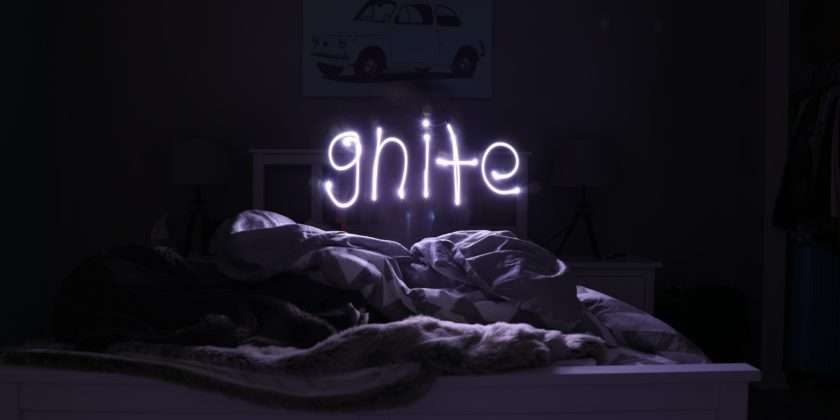Sleep1 is a period of unconsciousness during which the brain remains highly active. It is a complex biological process that helps people process new information, stay healthy, and rejuvenate. During sleep, the brain will cycle through five distinctive phases: stage 1, 2, 3, 4, and rapid eye movement (REM) sleep. Jay Harold’s post, “3 Devastating Ways Lack of Sleep Reduces Performance,” highlights why a good night’s sleep is so important.
Short Sleep Duration varies by Sex, Age, and Race/Ethnicity2
In 2014, short sleep duration (less than 7 hours) was less common among respondents aged ≥65 years (26.3%) compared with other age groups (see Table 1). The age-adjusted prevalence of short sleep duration was higher among Native Hawaiians/Pacific Islanders (46.3%), non-Hispanic blacks (45.8%), multiracial non-Hispanics (44.3%), and American Indians/Alaska Natives (40.4%) compared with non-Hispanic whites (33.4%), Hispanics (34.5%), and Asians (37.5%). Short sleep prevalence did not differ between men and women.
Why is sleep important?
Each phase is important to ensure that the mind and body are completely rested. Certain phases are needed to help you feel rested and energetic the next day, while other phases help you learn information and form memories.
Inadequate sleep contributes, in the short term, to problems with learning and processing information, and it can have a harmful effect on long-term health and well-being. According to the Centers for Disease Control and Prevention, many U.S. adults report that they don’t get the recommended number of hours of sleep each night.
3 Devastating Ways Lack of Sleep Reduces Performance
- Performance. Cutting back on sleep by as little as 1 hour can make it difficult to focus the next day and can slow your response time. Insufficient sleep can also make you more likely to take risks and make bad decisions, according to the National Heart, Lung, and Blood Institute (NHLBI).
- Mood. Sleep affects your mood. Insufficient sleep can cause irritability that can lead to trouble with relationships, particularly for children and teens. Also, people who don’t get enough sleep are more likely to become depressed, according to the NHLBI.
- Health. Sleep is important for good health, according to the NHLBI. Lack of sleep or lack of quality sleep increases your risk for high blood pressure, heart disease, and other medical conditions. The quality of your sleep is affected by environmental factors, such as disturbances while you are sleeping and whether you remain asleep the entire night. Also, during sleep, the body produces hormones that help children grow and, throughout life, help build muscle, fight illnesses, and repair damage to the body.1 Growth hormone, for example, is produced during sleep. It is essential for growth and development. Some hormones produced during sleep affect the body’s use of energy. This may be how inadequate sleep leads to obesity and diabetes.

Sleep-related difficulties affect many people. The following is a description of some of the major sleep disorders. If you, or someone you know, is experiencing any of the following, it is important to receive an evaluation by a healthcare provider or, if necessary, a provider specializing in sleep medicine.
Insomnia
Insomnia is characterized by an inability to initiate or maintain sleep. It may also take the form of early morning awakening in which the individual awakens several hours early and is unable to resume sleeping. Difficulty initiating or maintaining sleep may often manifest itself as excessive daytime sleepiness, which characteristically results in functional impairment throughout the day. Before arriving at a diagnosis of primary insomnia, the healthcare provider will rule out other potential causes, such as other sleep disorders, side effects of medications, substance abuse, depression, or other previously undetected illness. Chronic psychophysiological insomnia (or “learned” or “conditioned” insomnia) may result from a stressor combined with fear of being unable to sleep. Individuals with this condition may sleep better when not in their own beds. Health care providers may treat chronic insomnia with a combination of use of sedative-hypnotic or sedating antidepressant medications, along with behavioral techniques to promote regular sleep.
Narcolepsy
Excessive daytime sleepiness (including episodes of irresistible sleepiness) combined with sudden muscle weakness are the hallmark signs of narcolepsy. The sudden muscle weakness seen in narcolepsy may be elicited by strong emotion or surprise. Episodes of narcolepsy have been described as “sleep attacks” and may occur in unusual circumstances, such as walking and other forms of physical activity. The healthcare provider may treat narcolepsy with stimulant medications combined with behavioral interventions, such as regularly scheduled naps, to minimize the potential disruptiveness of narcolepsy on the individual’s life.
Restless Legs Syndrome (RLS)
RLS is characterized by an unpleasant “creeping” sensation, often feeling like it is originating in the lower legs, but often associated with aches and pains throughout the legs. This often causes difficulty in initiating sleep and is relieved by movement of the leg, such as walking or kicking. Abnormalities in the neurotransmitter dopamine have often been associated with RLS. Healthcare providers often combine a medication to help correct the underlying dopamine abnormality along with a medicine to promote sleep continuity in the treatment of RLS.

Sleep Apnea
Snoring may be more than just an annoying habit – it may be a sign of sleep apnea. Persons with sleep apnea characteristically make periodic gasping or “snorting” noises, during which their sleep is momentarily interrupted. Those with sleep apnea may also experience excessive daytime sleepiness, as their sleep is commonly interrupted and may not feel restorative. Treatment of sleep apnea is dependent on its cause. If other medical problems are present, such as congestive heart failure or nasal obstruction, sleep apnea may resolve with treatment of these conditions. Gentle air pressure administered during sleep (typically in the form of a nasal continuous positive airway pressure device) may also be effective in the treatment of sleep apnea. As interruption of regular breathing or obstruction of the airway during sleep can pose serious health complications, symptoms of sleep apnea should be taken seriously. Treatment should be sought from a health care provider.
How much sleep you need changes as you age3.
| Age Group | Recommended Hours of Sleep Per Day | |
|---|---|---|
| Newborn | 0–3 months | 14–17 hours (National Sleep Foundation)1 No recommendation (American Academy of Sleep Medicine)2 |
| Infant | 4–12 months | 12–16 hours per 24 hours (including naps)2 |
| Toddler | 1–2 years | 11–14 hours per 24 hours (including naps)2 |
| Preschool | 3–5 years | 10–13 hours per 24 hours (including naps)2 |
| School Age | 6–12 years | 9–12 hours per 24 hours2 |
| Teen | 13–18 years | 8–10 hours per 24 hours2 |
| Adult | 18–60 years | 7 or more hours per night3 |
| 61–64 years | 7–9 hours1 | |
| 65 years and older | 7–8 hours1 | |

Tips for Better Sleep4
Good sleep habits (sometimes referred to as “sleep hygiene”) can help you get a good night’s sleep.
Some habits that can improve your sleep health:
- Be consistent. Go to bed at the same time each night and get up at the same time each morning, including on the weekends
- Make sure your bedroom is quiet, dark, relaxing, and at a comfortable temperature
- Remove electronic devices, such as TVs, computers, and smart phones, from the bedroom
- Avoid large meals, caffeine, and alcohol before bedtime
- Get some exercise. Being physically active during the day can help you fall asleep more
Although the amount of sleep you get each day is important, other aspects of your sleep also contribute to your health and well-being. Good sleep quality is also essential. Signs of poor sleep quality include not feeling rested even after getting enough sleep, repeatedly waking up during the night, and experiencing symptoms of sleep disorders (such as snoring or gasping for air). Improving sleep quality may be helped by better sleep habits or being diagnosed and treated for any sleep disorder you may have.
Racial minorities have a higher risk for sleep disorders than Whites
The National Sleep Foundation5 states that racial minorities have a higher risk for sleep disorders like insomnia than Caucasians. For example, African Americans are more likely than Caucasians to sleep for fewer than six hours a night and have sleep apnea, poor sleep quality, and daytime sleepiness. On average, African Americans sleep almost an hour less a night than whites.
On top of that, African Americans spend only about 15 percent of their night in a stage called slow-wave sleep (which is considered to be the most restorative phase ). Caucasians, on the other hand, spend 20 percent of their night there, so the sleep that they’re getting is of a higher quality. People of Hispanic and Chinese heritage also have higher rates of issues like sleep-disordered breathing and short sleep durations, compared with whites.
Enjoyed this post? Share it and read more here. Jay Harold has put together a Resource page that you may find useful when trying to improve your health and wealth. Please take this advice from Muhammad Ali and give back to others. “Service to others is the rent you pay for your room here on earth.”
Bibliography
- https://www.nichd.nih.gov/health/topics/sleep/conditioninfo/default
- https://www.cdc.gov/sleep/data_statistics.html
- https://www.cdc.gov/sleep/about_sleep/how_much_sleep.html
- https://www.cdc.gov/sleep/about_sleep/sleep_hygiene.html
- https://sleepfoundation.org/sleep-disorders-problems-list/whats-the-connection-between-race-and-sleep-disorders




